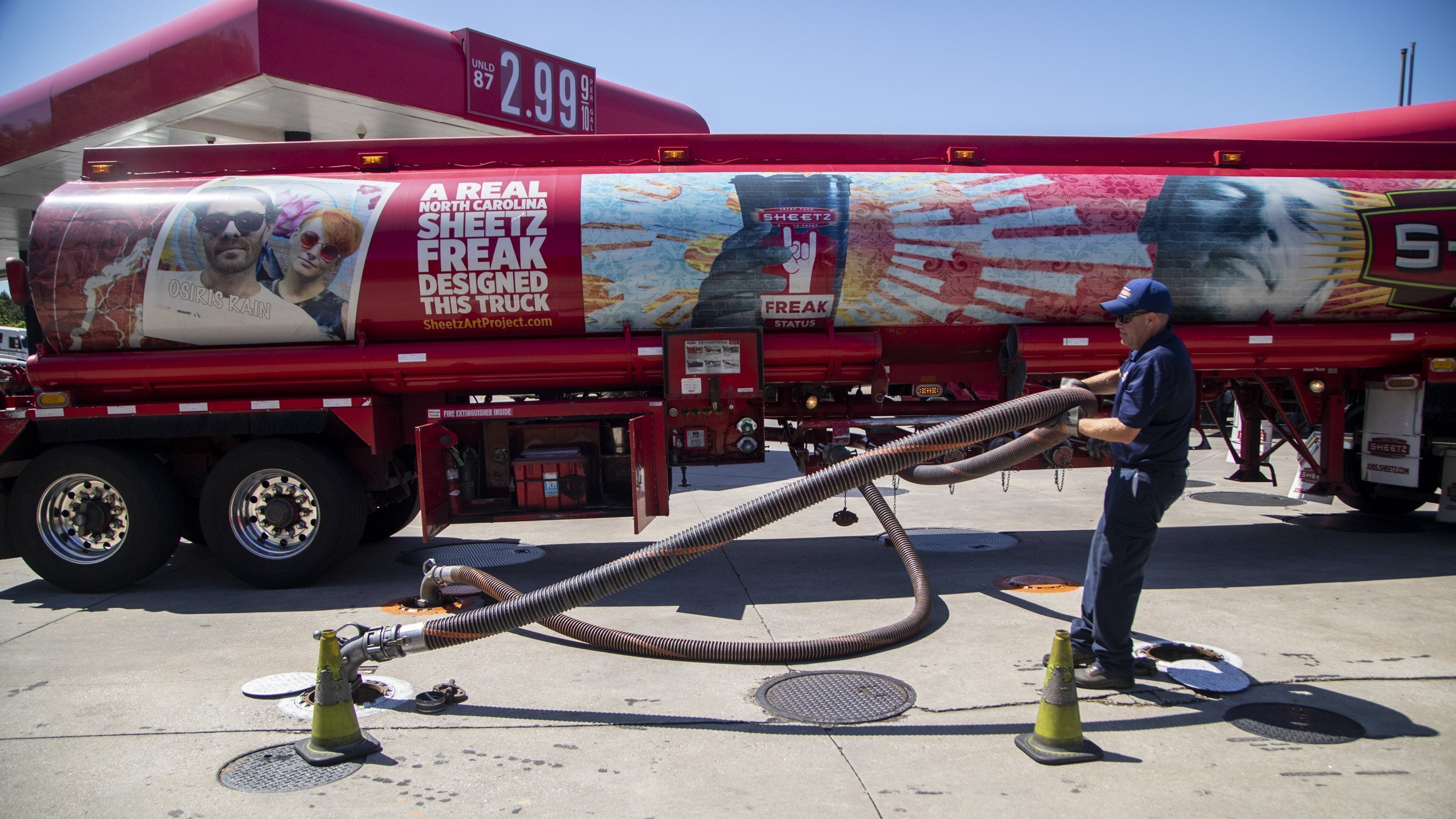MORGANTOWN — As the Southeast slowly recovers from the Colonial Pipeline outage, state Attorney General Patrick Morrisey announced Tuesday that he has joined a coalition of 19 attorneys general in calling upon President Biden to support additional energy infrastructure.
“Americans depend upon safe and secure energy supplies, which is why we must build and maintain robust energy infrastructure that is resilient in the face of accidents and sabotage,” they said in their Monday letter to Biden. “A temporary shutdown of one pipeline’s full-capacity operations shouldn’t bring half the country to the brink. We need more safe and clean energy sources.”
The letter links the effects of the Colonial shutdown to Biden’s shutdown of the Keystone XL Pipeline and his subsequent response to the shortages triggered by the Colonial incident.
“When you were vice-president, your State Department concluded multiple times that Keystone XL was a net positive for the economy, the environment, and energy security,” the letter says. “And just days ago, your energy secretary acknowledged that a pipeline — as opposed to other transport methods — ‘is the best way to go’ when it comes to moving fossil fuels. But your administration’s current approach exchanges those fact-based conclusions for the faddish preoccupations of your coastal elite constituencies.
“Yet in the aftermath of the Colonial Pipeline cyberattack,” the letter continues, “your administration quickly relaxed environmental and safety rules to “secure critical energy supply chains … alleviate shortages … and avoid potential energy supply disruptions to impacted communities.
“Most Americans — particularly those not located along the coasts — now wish you had been so diligent and responsive before you determined that Keystone XL could be sacrificed on the altar of left-wing virtue signaling,” they said.
The attorneys general argue in the letter that Biden’s cancellation of Keystone XL “undercuts our energy independence by eliminating a large and secure source of oil in a time of growing global unrest. It damages our reputation with geopolitical allies, like Canada, by reneging on our commitments. It destroys sophisticated, high-paying jobs. And it stunts sustainable economic growth in pipeline communities and throughout the country.”
Colonial Pipeline tweeted on Monday that it “continues to make substantial progress in safely moving other’s product throughout our pipeline system. We can now report that we are transporting refined products (gasoline, diesel and jet fuel) at normal levels and are fully operational.”
However, media outlets reported Tuesday morning that its communication system that allows customers to nominate and make changes to their batches of fuel traveling through the system has been inaccessible, according to shippers on the line. Colonial said it is aware of the problem and is working on it.
The pipeline shutdown — stemming from a ransomware attack by hackers that led the company to shut down the pipeline to prevent malware from taking over its systems — led to gas price spikes, shortages in Southeast states, and in West Virginia panic-hoarding, even though the vast majority of the state’s supply comes from another pipeline.
GasBuddy, a website and app that tracks supplies and prices using crowdsourced data from its app users, reported improvements in supplies and station outages on Tuesday. North Carolina remained the state still most affected. On May 12, GasBuddy reported 65% of North Carolina’s stations were without fuel. On Tuesday that had fallen to 47%. South Carolina and Georgia were at 43% and 38%, respectively, on Tuesday.
West Virginia was among the least affected, but has actually gotten worse — going from 4% May 12 to 5% Tuesday. Neighbors Kentucky, Maryland and Virginia and stood at 2%, 23% and 27%, respectively, on Tuesday.
The city of Washington, D.C., was suffering 70% of its gas stations without fuel.
The letter to Biden was led by attorneys general for Montana and Texas. Along with West Virginia, the other states joining were Alabama, Arizona, Arkansas, Florida, Georgia, Indiana, Kansas, Kentucky, Louisiana, Mississippi, Missouri, North Dakota, Oklahoma, South Carolina, Utah, and Wyoming.
West Virginia is also a part of 21-state coalition currently suing the Biden administration over its revocation of the Keystone XL cross-border permit.
TWEET David Beard @dbeardtdp
EMAIL dbeard@dominionpost.com




